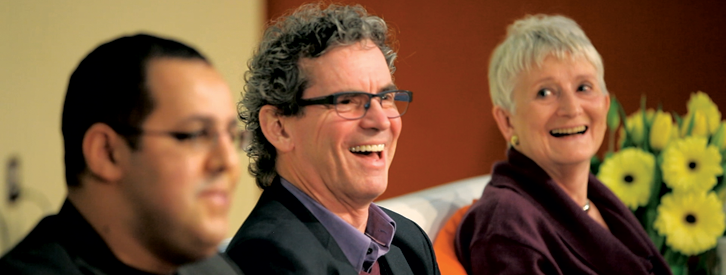DAY ONE: Sunday, March 17, 2013
LOCATION: William Doo Auditorium, 45 Willcocks Street, Toronto, Canada | MAP
13:00 – 14:15 |
REGISTRATIONHors d’oeuvres and non-alcoholic beverages will be served. |
14:00 – 14:30 |
OPENING AND WELCOMEProfessor Ron Deibert: Welcome Presentation, CD12 and Citizen Lab 2012 Review, CD13 Objectives |
14:30 – 16:30 |
PLENARY PANELSTAKING OUT THE ISSUES: WHAT’S AT STAKE? Moderator Nora Young of CBC Spark leads a dialogue on salient topics and issues for CD13 and beyond. Panelists and participants will contribute topics and questions to help frame next day sessions. |
18:00 – 21:00 |
RECEPTION (University Ballroom)DINNER (Queen’s Park South and Central Ballrooms)LOCATION: Park Hyatt Hotel, 4 Avenue Road, Toronto, Canada | MAP |
21:00 – 23:00 |
NIGHT OWL SESSIONS (Mezzanine Lounge)Discuss and debate hot topics of the day in a relaxed socially lubricated atmosphere.* LOCATION: Park Hyatt Hotel, 4 Avenue Road, Toronto, Canada | MAP *If you intend to imbibe, please plan a safe ride. |
DAY TWO: Monday, March 18, 2013
LOCATION: William Doo Auditorium, 45 Willcocks Street, Toronto, Canada | MAP
07:45 – 08:30 |
BREAKFASTA selection of pastries and fresh fruit will be served. |
08:30 – 10:00 |
PANEL ONECYBERSPACE GOVERNANCE: Exploring constitutive principles and values, today and into the future The 2012 WCIT meeting of the International Telecommunications Union (ITU) in Dubai illustrated a growing chasm in global cyberspace governance: between those who believe governance should remain distributed among private sector, civil society and governments, with Internet Corporation for Assigned Names and Numbers (ICANN) and the Internet Engineering Task Force (IETF) at the foundation of a multi-stakeholder approach, and those who want a stronger role for the state in cyberspace governance, under the auspices of the United Nations and led by the ITU. In view of the split that did occur at WCIT, battle lines seem drawn between states that want governance based on the principle of national sovereignty on one side, and a powerful network of private sector companies, civil society and some governments that champions an Internet where states are limited in their authority to control information flows. Should the ITU play any role in Internet governance? Do we still need the ITU? Does the ICANN system need to be internationalized in some manner? Does it need reform as cyberspace expands southward? What will cyberspace governance look like 50 years from now? Can it be governed by truly global values? |
10:00 – 10:30 |
COFFEE BREAK / NETWORKING |
10:30 – 12:00 |
PANEL TWO:POLICING CYBERSPACE: Debating who should do the policing and under what conditions Criminal activity in and through cyberspace has presented extraordinary challenges for law enforcement. Many countries are addressing these challenges through new or proposed legislation, typically called “lawful access,” or through new cyber security strategies. While there are variations among countries, it is hard to deny the overall trend towards the imposition of greater responsibilities and requirements on the private sector, including telecom companies and ISPs, to retain and share user data with law enforcement or state security services. Are lawful access provisions creating pressures for the private sector to “police the Internet?” What are possible unintended consequences of such pressures? What is the future of online anonymity? Are civil liberties and due process being preserved enough as lawful access requirements are imposed? Who is watching the watchers? |
12:00 – 13:30 |
LUNCHLocation: The Faculty Club, 41 Willcocks Street, Toronto, Canada | MAP (next door to 45 Willcocks) |
13:30 – 15:00 |
PANEL THREE:THE “DIGITAL ARMS TRADE”?: Probing the market for censorship, surveillance and computer network attack in a context of “attacking back” Lawmakers at national and regional levels, with the support of civil society, are beginning to propose greater regulation of what is called the “digital arms trade.” What are the motives and benefits for regulating the market, and how can it be regulated? What is the a role for corporate self governance in this area? Why is this market emerging in the first place? To control the market, do we need to control the cyber arms race? If so, how? |
15:00 – 16:15 |
COFFEE BREAK / NETWORKING AND BREAKOUT SESSIONSOpen opportunities to probe issues, network, and strategize in smaller group settings under the Chatham House rule. |
16:15 – 17:00 |
CLOSING REVIEW SESSIONProfessor Ron Deibert: CD13 conclusions and projections/wish list for the next 12 months. |










